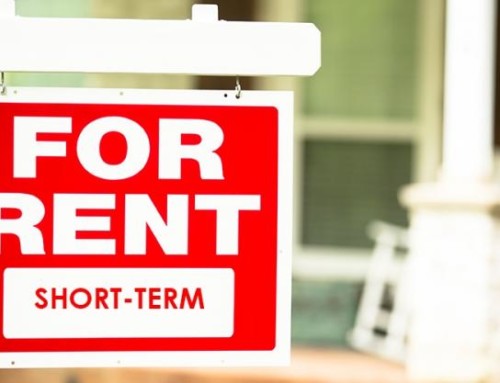Sold Rush: The people behind the scenes of the region’s 2020 real estate boom
Record December 2020 home sales in the Grand Traverse area tipped total sales figures over $1 billion, setting records for both number of homes sold in a single year (3,455 homes) and total single-year sales value ($1,220, 513,667).
Factors like people relocating to northern Michigan and real estate agents hustling to close the sales helped set those records. But what about the people behind the scenes: those bank mortgage brokers, or the closing specialists at title companies, the people who scrambled to make all this growth happen?
“Everybody – all the support staff, the loan processors, the underwriters, the closers – everybody is just tapped to their limit,” said Gail Chambers, senior residential loan officer at Independent Bank. “Everyone is working their hearts out, trying to keep things moving along. They’ve done a really good job, but we’ve got people working nights, weekends, every day.”
One of the big drivers for all the work – and the one not shown by raw real estate sales numbers – is mortgage refinancing. Thanks to historic-low mortgage rates from the Federal Reserve, Chambers says banks have been inundated with refi applications since “the gates opened up” back in March. Those applications – plus the high sales activity the market is currently seeing – have left mortgage teams as busy as they’ve ever been.
“I’ve done this for over 40 years, and I think it’s fair to say that these are the lowest rates ever,” Chambers said. “I can remember back when people would think that 8-9 percent (mortgage interest) was good. And now, if you say 3.25 percent, that’s not so good. So it’s all relative, but the refinance activity has been extremely brisk.”
For comparison’s sake, Chambers notes that the 30-year mortgage rate at the end of 2018 was 4.5 percent. By the end of 2020, that same mortgage loan was 3 percent. For new buyers, those low interest rates provide more buying power, which is helping to encourage real estate purchases. And for the vast majority of current owners – even those who bought their homes relatively recently – the lower rates mean the possibility of saving a considerable amount of money.
The result? A lot of people working their way through the mortgage loan pipeline at the same time. Over the past 10 months, Chambers says she’s had between 40 and 70 active clients at any given time, up from a pre-pandemic norm of 20-30. That extra volume throughout the system means loans are taking longer to process. Before COVID-19, the refinance process typically took 30 to 45 days. Now, it’s taking “60 days and longer, depending on the circumstances.”
According to Brandon Hunt – president, CEO, and closing officer for Mid-American Title – the low interest rates were just one piece of the puzzle for 2020’s chaotic local real estate boom. The seeds, he says, were all sown in March of last year: the dropping rates; the executive orders that “didn’t allow realtors and builders to work”; the widespread adoption of remote work and remote school; Traverse City’s already high-demand/low-inventory real estate market.
“It was kind of like pressure building up in a hose,” Hunt said, specifically pointing to the springtime pause on real estate activity. “Finally, when they let (real estate agents go back to work), the market just got flooded with buyers.”
Hunt says that relocations plus low inventory affected the local market.
“We saw a lot of people moving up to this area, either from out of state or from downstate. And at the same time, our inventory is very low,” he said.
Better interest rates fanned the flames.
“The interest rates kept getting better, so everyone wanted to jump in and take advantage of that,” added Marc Hunt, Mid-American Title’s title manager. “And therefore, everyone’s looking for a new house, or building something, or refinancing. We’ve even seen the same person refinance multiple times in the same year.”
The added activity, combined with a shift away from in-person interactions wherever possible, quickly drove big changes for the title industry. Virtual closings, online document signings, and online notarizations have all been key for allowing companies like Mid-American Title to keep up with both the pace of 2020 real estate activity and the safety protocols demanded by the COVID-19 pandemic.
For what Hunt calls “an in-person, paper-dominated industry,” those changes to both legal precedent and status quo were significant.
“On the current trend, it would have probably taken another five to 10 years before our industry adopted those technologies,” Hunt said, “But we were kind of forced into it (by the pandemic), which I see as a good thing, because it streamlined a lot of the process. We could do a lot more closings safely because we could do them remotely.”
Whether those changes will remain after the pandemic subsides is one of the biggest questions currently facing the title industry. On one hand, Hunt says realtors and buyers enjoy the traditional in-person closing process, mostly because it provides a bit more pomp and circumstance to the pivotal last step of buying a house. On the other hand, the convenience and efficiency of digitally driven closings are huge gains, with benefits that won’t go away with the global pandemic.
“I think (these technologies) might stay in the toolbox, because our industry was already working toward them,” Hunt said. “I think some of them will change, because there are executive orders that were allowing (us to use) some of these tools.”
For example, Hunt notes that all county courthouses are now required by executive order to accept digital signatures on closing documents. When those executive orders go away, courthouses will theoretically be able to decide whether they wish to continue the policy or not, which would in turn affect how title companies could structure their closings.
In Grand Traverse County, Hunt says it was already possible, pre-COVID, for every part of a closing process to be done digitally. But in Leelanau County, some documents could be signed digitally and some couldn’t, and in some other parts of the state, everything had to be done in person and on paper.
“So that’s always been a frustration: that you have to know every county and what their rules are,” Hunt said. “Every county has an elected register of deeds, and it’s up to them if they want to accept (digital signatures) or not.”
With each election cycle, more changes could occur, he said.
“So, we’d love to see something go through the legislature that says it’s allowed,” he said.











